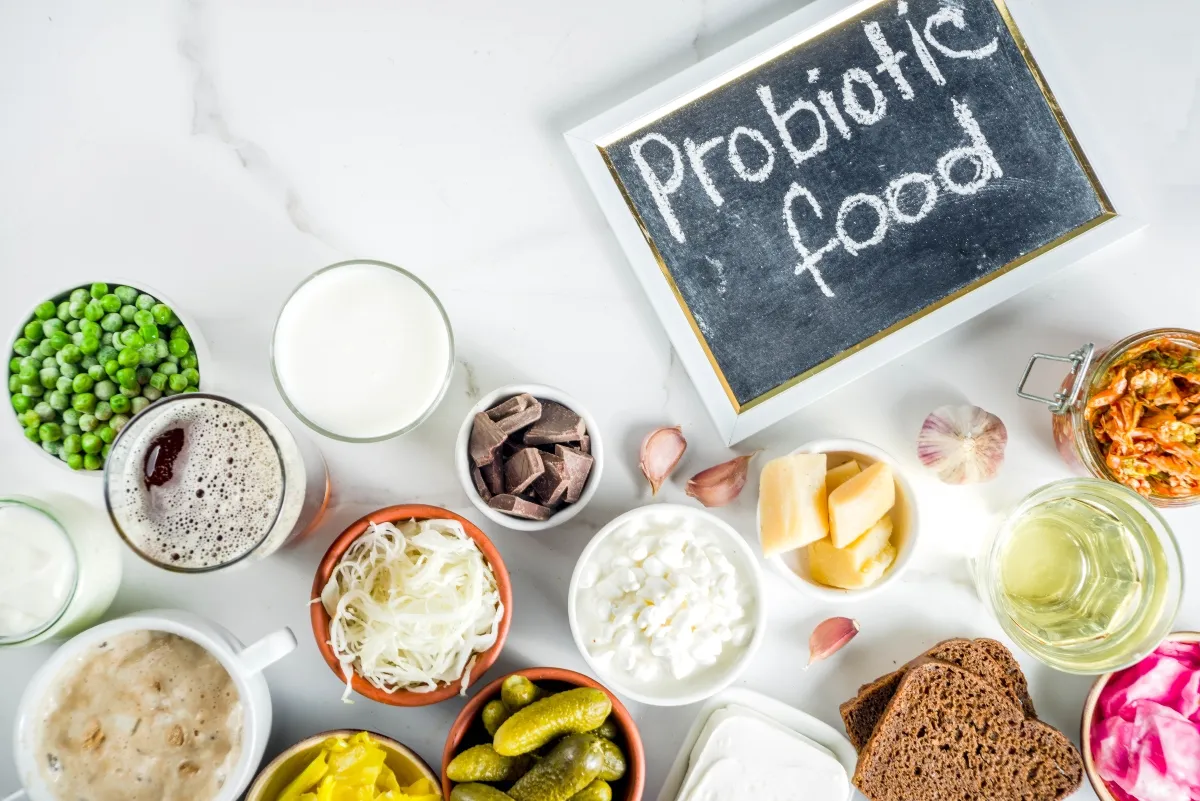Introduction
Probiotics have gained significant attention in recent years for their potential to promote gut health and overall well-being. These live microorganisms, often referred to as “good” bacteria, offer a myriad of health benefits when consumed regularly. In this comprehensive guide, we will explore eight evidence-based health benefits of probiotics and how they can positively impact various aspects of your health.
Improved Digestive Health
One of the most well-known benefits of probiotics is their ability to promote digestive health. Probiotics help maintain a healthy balance of gut bacteria, which is essential for proper digestion and nutrient absorption. They can also alleviate symptoms of digestive disorders such as irritable bowel syndrome (IBS), constipation, and diarrhea.
Enhanced Immune Function
The gut microbiota plays a crucial role in regulating immune function, and probiotics can help support a healthy immune system. By promoting a diverse and balanced gut microbiome, probiotics help strengthen the body’s natural defenses against infections and pathogens, reducing the risk of illness.
Reduced Inflammation
Chronic inflammation is linked to various health conditions, including heart disease, diabetes, and autoimmune disorders. Probiotics have been shown to help reduce inflammation by modulating the immune response and promoting the production of anti-inflammatory compounds in the gut.
Management of Skin Conditions
The health of the gut microbiota is closely linked to the health of the skin, and probiotics may play a role in managing certain skin conditions. Studies suggest that probiotics can help reduce symptoms of eczema, acne, and rosacea by improving gut health and reducing inflammation throughout the body.
Support for Mental Health
Emerging research indicates a strong connection between the gut and the brain, known as the gut-brain axis. Probiotics may influence mood and mental health by modulating neurotransmitter production, reducing inflammation, and promoting gut-brain communication. Regular consumption of probiotics has been associated with improved mood, reduced anxiety, and enhanced cognitive function.
Regulation of Weight and Metabolism
Probiotics may play a role in weight management and metabolic health by influencing energy balance, fat storage, and appetite regulation. Studies have shown that certain strains of probiotics can help reduce body weight, belly fat, and insulin resistance, potentially lowering the risk of obesity and metabolic disorders.
Maintenance of Oral Health
The health of the oral microbiota is essential for overall oral health, and probiotics can help support a healthy balance of bacteria in the mouth. Probiotic strains such as Lactobacillus and Bifidobacterium have been shown to inhibit the growth of harmful bacteria, reduce plaque formation, and prevent oral infections like gum disease and cavities.
Alleviation of Allergies and Asthma
Probiotics may help alleviate symptoms of allergies and asthma by modulating the immune response and reducing inflammation. Studies have shown that probiotic supplementation during pregnancy and infancy may reduce the risk of allergic diseases such as eczema, asthma, and allergic rhinitis in children.
Frequently Asked Questions (FAQs)
Are probiotics safe for everyone to take?
In general, probiotics are considered safe for most people, including healthy individuals and those with mild digestive issues. However, individuals with compromised immune systems or serious underlying health conditions should consult with a healthcare professional before taking probiotic supplements.
What are the best food sources of probiotics?
Fermented foods are excellent natural sources of probiotics and include yogurt, kefir, sauerkraut, kimchi, miso, tempeh, and kombucha. Incorporating these foods into your diet regularly can help maintain a healthy balance of gut bacteria.
Can probiotics help with weight loss?
While probiotics may support weight management by promoting a healthy gut microbiome and metabolic function, they are not a magic bullet for weight loss. A balanced diet, regular exercise, and lifestyle modifications are essential components of a successful weight loss plan.
How long does it take to see the benefits of probiotics?
The timeline for experiencing the benefits of probiotics varies depending on factors such as the individual’s health status, the specific strains of probiotics consumed, and the dosage. Some people may notice improvements in digestive health within a few days to weeks, while other benefits may take longer to manifest.
Can probiotics be taken with antibiotics?
Yes, probiotics can be beneficial when taken alongside antibiotics to help replenish beneficial gut bacteria that may be depleted by antibiotic therapy. However, it’s essential to consult with a healthcare professional for personalized recommendations on timing, dosage, and specific probiotic strains.
Are there any side effects of taking probiotics?
While probiotics are generally safe for most people, some individuals may experience mild digestive discomfort, gas, bloating, or diarrhea when first starting probiotic supplementation. These side effects are usually temporary and subside as the body adjusts to the probiotics.
How do I choose the right probiotic supplement?
When selecting a probiotic supplement, look for products that contain well-researched strains of bacteria, are manufactured by reputable companies, and have undergone third-party testing for quality and potency. Consider factors such as the number of live organisms (CFUs), strain diversity, and any additional ingredients or coatings.
Conclusion
Probiotics offer a wealth of health benefits, from supporting digestive health and immune function to promoting skin health, mental well-being, and beyond. By incorporating probiotic-rich foods and supplements into your diet and lifestyle, you can nurture a healthy gut microbiome and unlock the potential for optimal health and vitality.
- The Growing Demand For THC Beverages Among Gen Z - May 31, 2025
- Skin Pen Microneedling Near Albury, Surrey - May 31, 2025
- Thc Soda In Illinois IL - May 30, 2025




